Alice Cooper on shock rock – past, present and future
Godfather of shock speaks
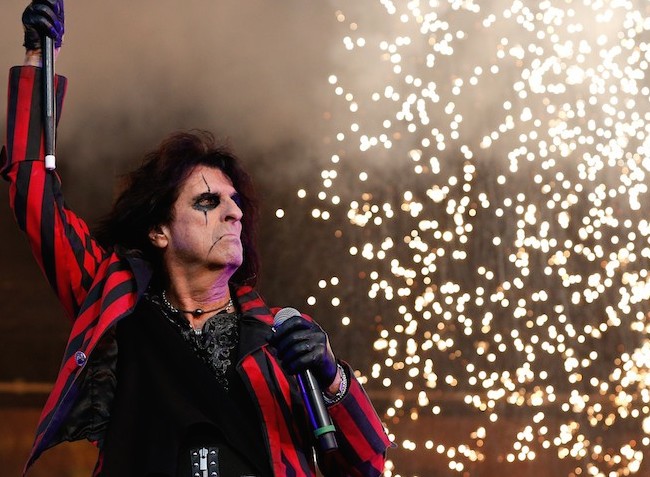
Alice Cooper on shock rock - past, present and future
When Vincent Furnier adopted the moniker Alice Cooper, first for his band and then for himself, in the late '60s, he not only kicked off a career that would span six decades (and counting), but he also invented an entire genre – shock rock.
By incorporating campy elements from horror movies and introducing a wealth of weird and wild stage props to his live show – everything from boa constrictors to guillotines – Cooper became public enemy number one to parents and conservative Bible Belt thumpers, and in the process he became a superstar, influencing a new generation of showmen who followed him, such as Rob Zombie, Marilyn Manson and a host of others.
As Cooper snakes across the US on a mega tour with Mötley Crüe, we spoke to the 66-year-old evergreen icon on shock rock's past, present and future.
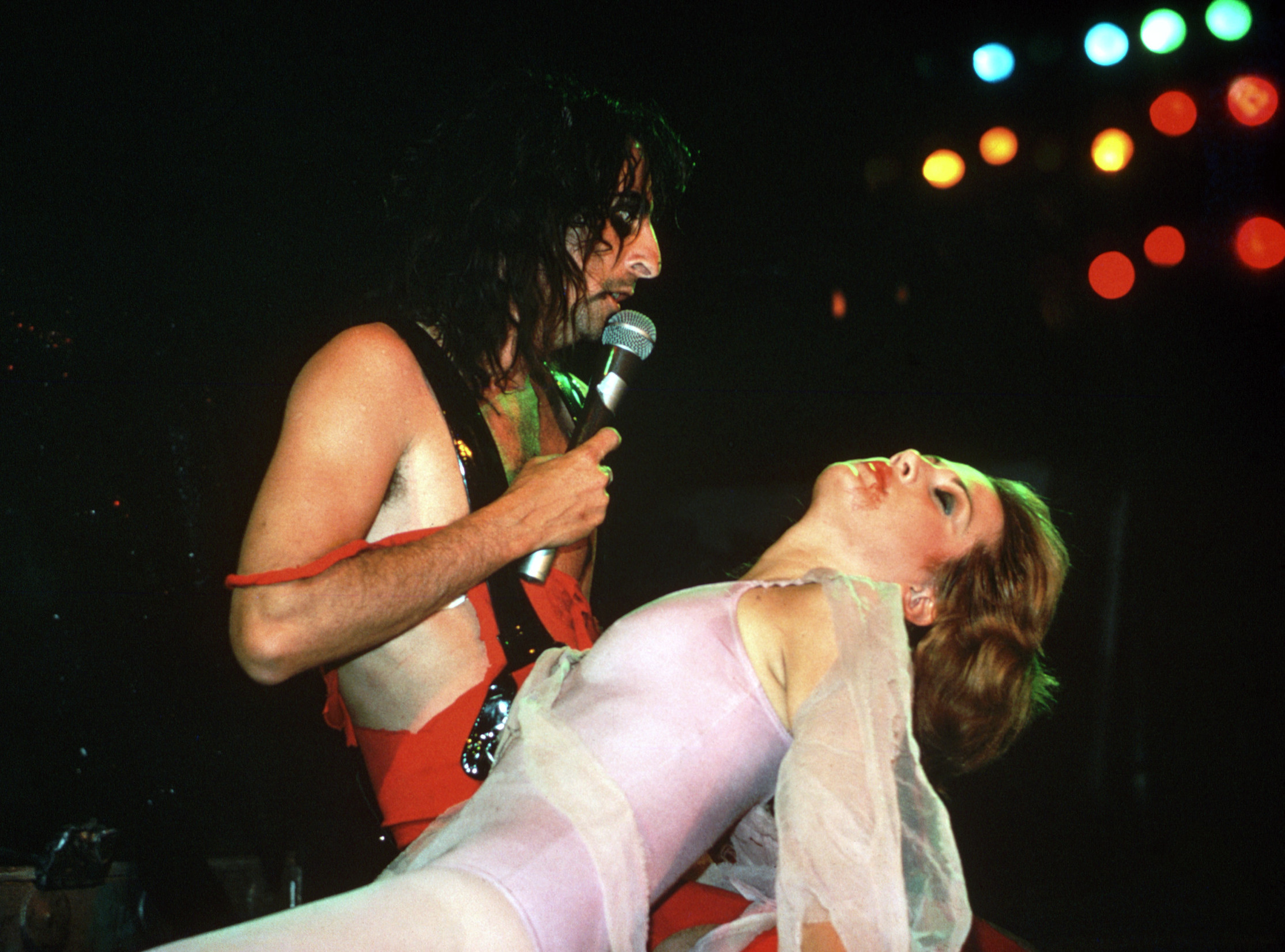
Early days
"Musically, like everybody else, we started in high school as a Beatles band. That's how everybody started in the US, you learned Beatles songs. We were not born out of the Beach Boys; we were The Kinks, The Who, The Yardbirds.
"Then, once you learned Beatles and Rolling Stones songs, you realized that, with a lot of the Stones stuff, they were selling us back our own music. They were selling us back the blues – almost every song was Sonny Boy Williamson or Willie Dixon or something like that.
"We learned all of it. It was like our kindergarten, learning all of the basics and how to do the Stones kind of swagger. We ended up being a Yardbirds band; they were what really caught our attention. Once we could play and were a good cover band, we started learning Yardbirds stuff."
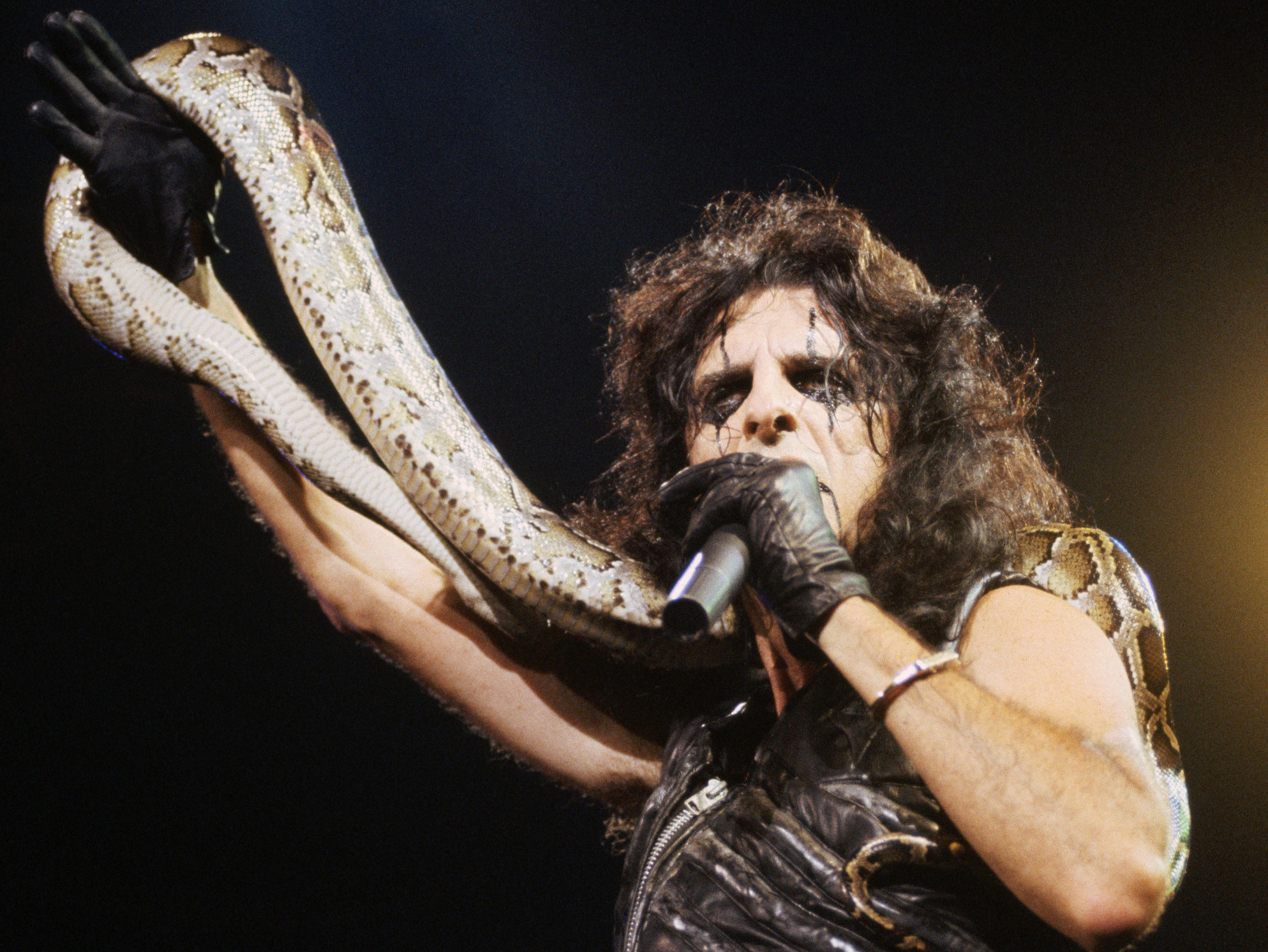
Birth of a showman
"The Yardbirds and The Who were the bands that really gave us our stage presence. I looked at Pete Townshend and said, 'That is what rock 'n' roll is about.' His attitude on stage is what rock should be. Keith Moon was insane on the drums. And the sound – it was a sound that took The Beatles and Stones a step further.
The Yardbirds didn't sound like anyone else, and that was probably due to Jeff Beck. Once we had that, we started writing our own versions of that and pretty soon we added a little West Side Story and a little Dracula, and pretty soon we had Alice Cooper."
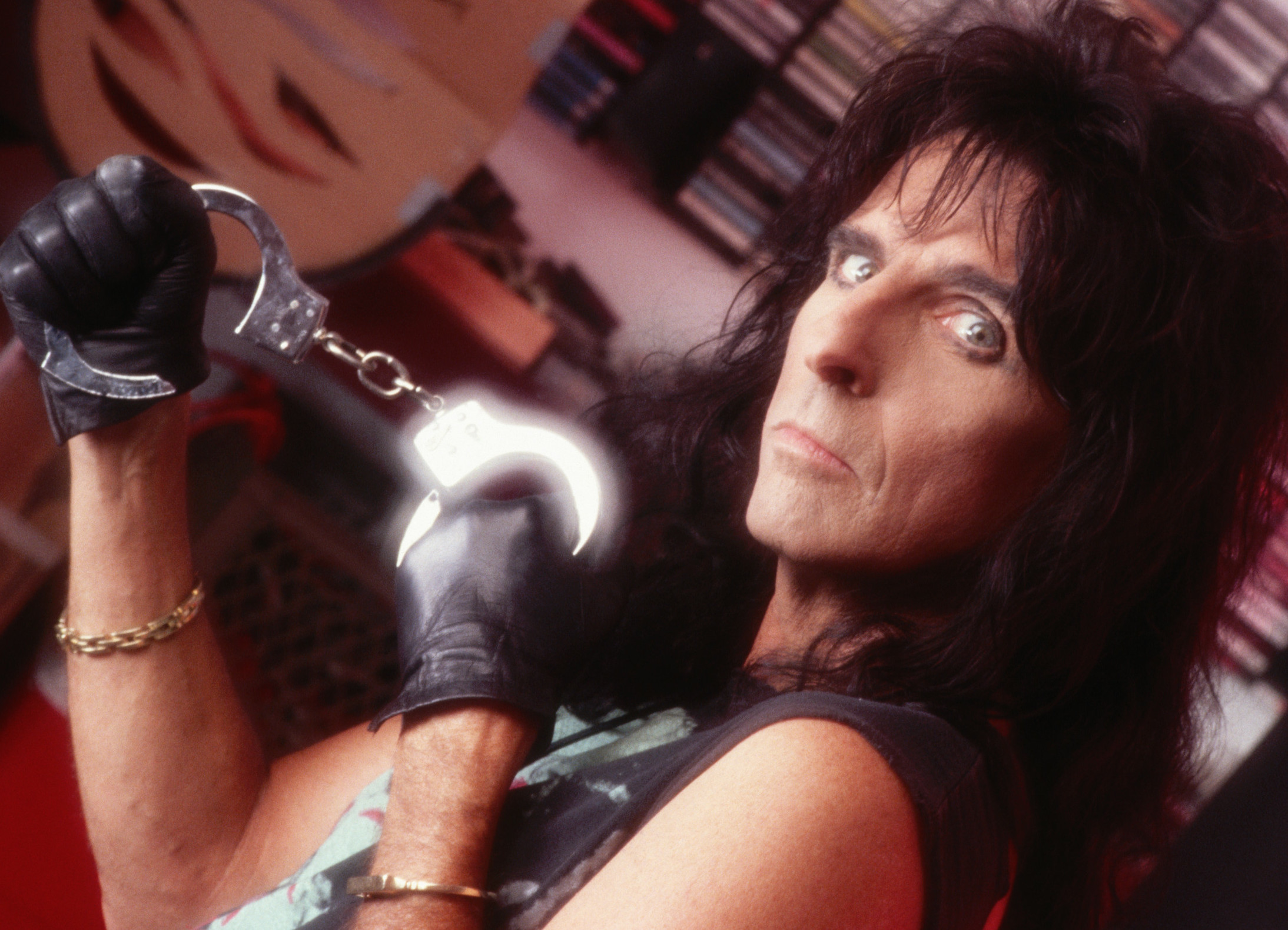
Public enemy number one
"The stage show, to me, it was quite obvious that rock was full of idols and heroes, but there were no villains. I couldn't find a villain in the bunch. I thought, 'If nobody wants to play Captain Hook, I do!'
"When I developed Alice Cooper, I said I would make Alice the foil to The Beatles; he'll be the Moriarty to their Sherlock Holmes. Then we really had fun with it because any time anything happened, it was Alice's fault. That was just gasoline on the fire.
"When [Britsh social activist] Mary Whitehouse decided to ban us, we couldn't have asked for anything better than that. Every time they would try to ban us, the British public was behind us. They'd say, 'You can't tell us what we can and can't see.'
"The record [School's Out] went to number one, and we sold out every ticket we had. We couldn't have planned that any better."
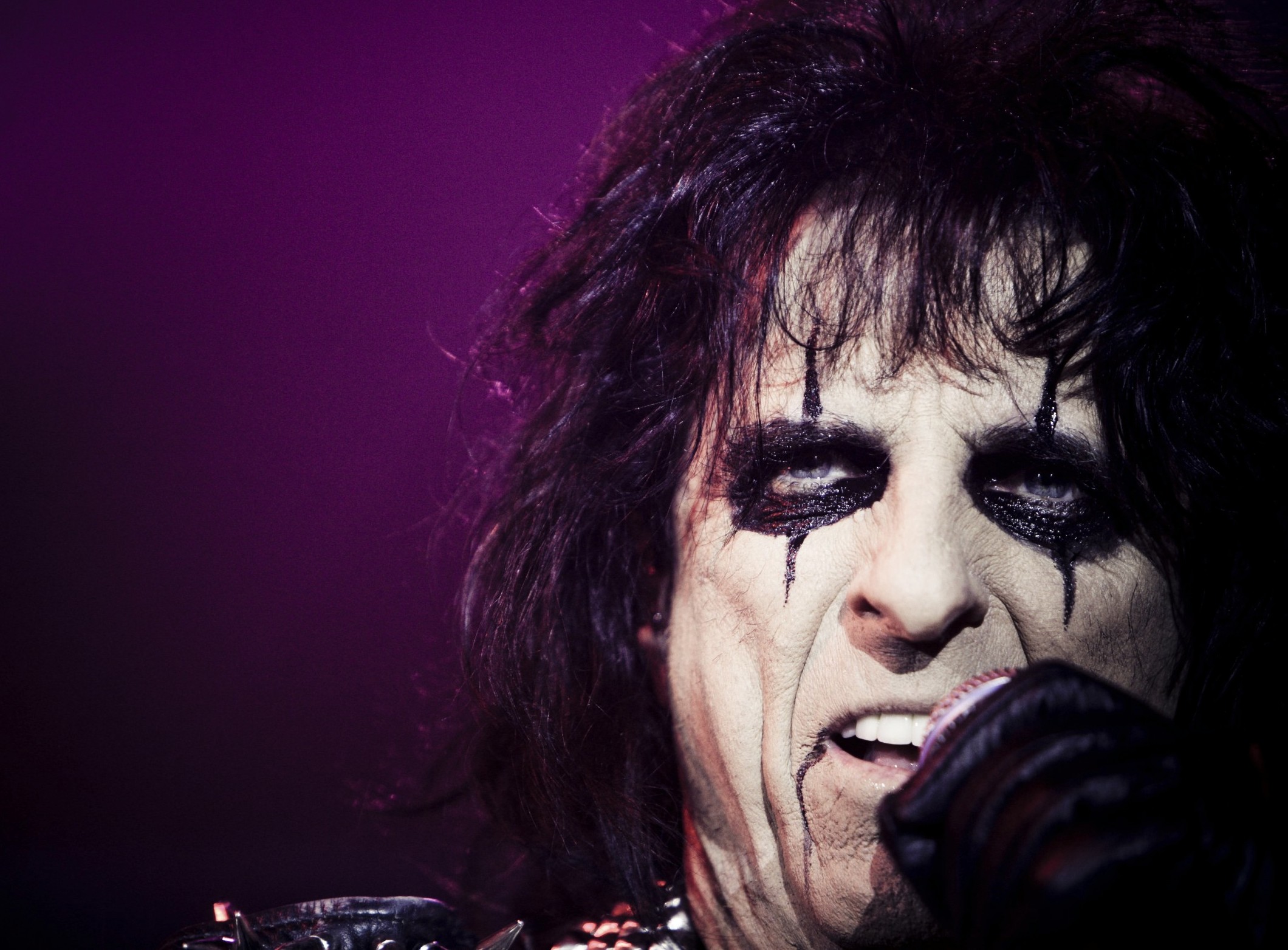
Jaws drop...
"Remember the film The Producers and the audience reaction for Springtime For Hitler, where they're there with their mouths open thinking they cannot believe how outrageous and how in bad taste it is? That was the reaction we got [early on].
"The first time I saw The Producers, I laughed like crazy, but that was us. It was really entertainment, but it was like, 'What is this? How dare they do this? Oh, but this is really fun.' I loved that reaction.
"Later on, it became palatable to the point that now people expect it and wonder what Alice will do now. That is the fun part of my show. I want the audience to see all of that, but I want them to mostly come for the music. If we don't do those songs, we get booed off the stage. The songs are the basis for everything."
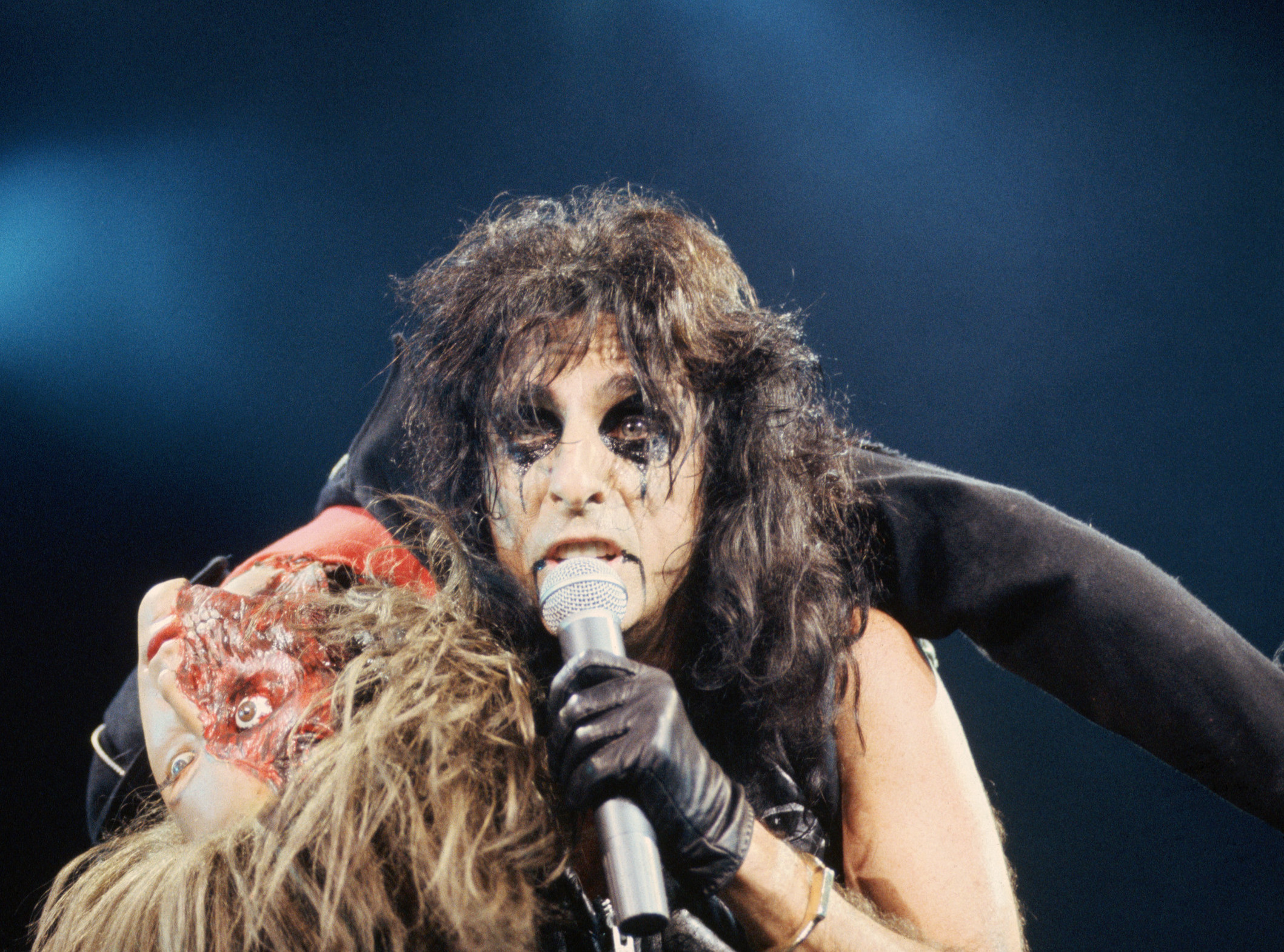
The pressure to deliver
"Once you get there, you have to deliver. Once you get to the show and everyone has heard all the hype, you have to give them a show that they can't forget. We did have that show; we did have the experimental things that nobody had ever done before.
"We did things nobody had ever thought about: We used extras in the show; we used a little slight of hand. Alice, the character himself, was a piece of theatre – you never knew what he was going to do. Everything needs to be based on the song. The music is the cake, and the theatrics is the icing. If you don't have the songs, then you're putting icing on nothing."
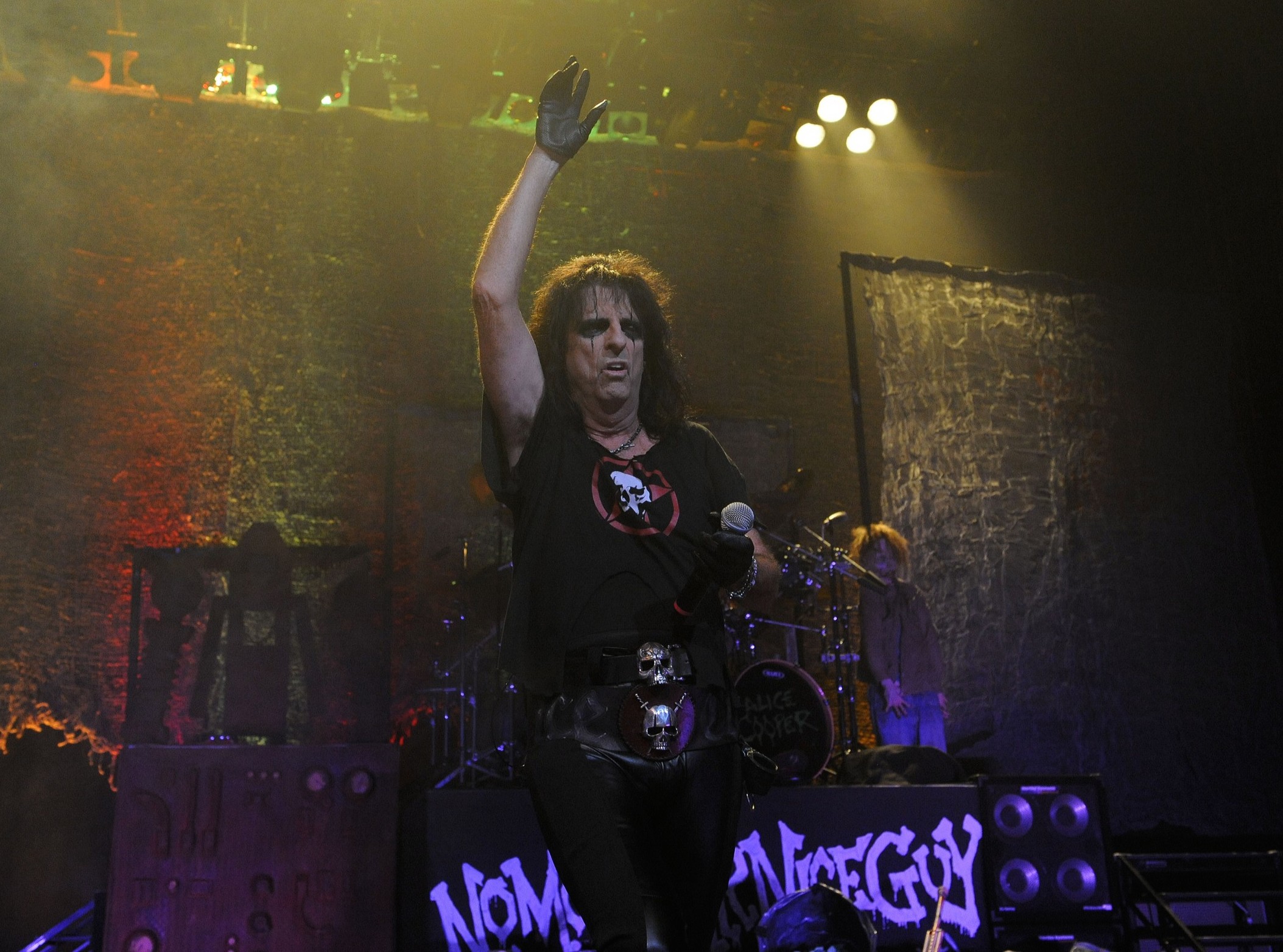
Big in Britain
"Britain got it first. When Britain got it, everybody thought we were from Britain – it felt like a British band. It was like with Jimi Hendrix: Everyone thought he was British because he was a success in Britain before the States. I give the British a lot of credit for my success because they got what I was doing first."
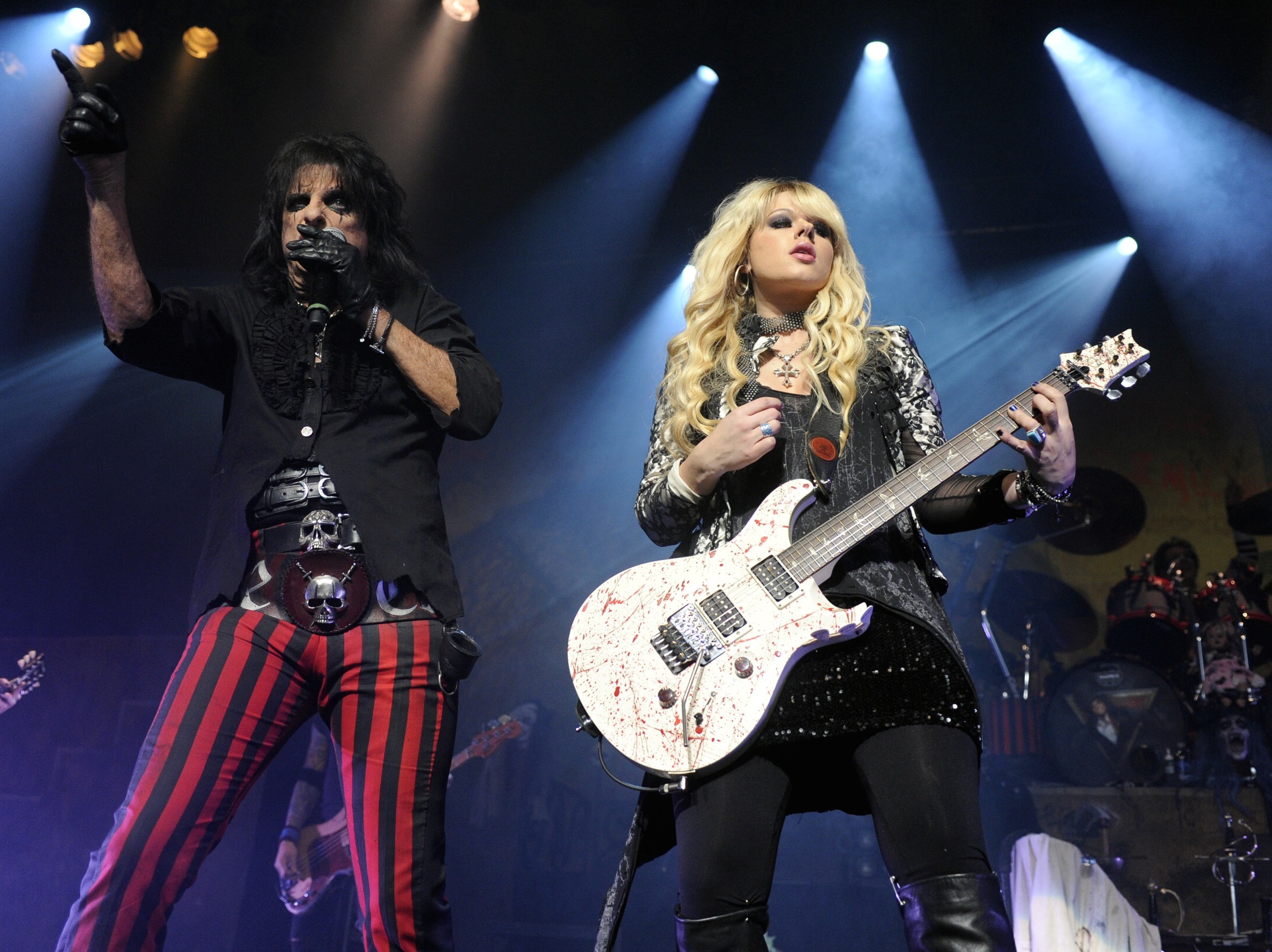
Newcomer to the scene
"When Marilyn Manson came out, I said, 'OK, let me see, a guy with make-up on with a girl's name who does theatrics – I wish I had thought of that!'
"Marilyn and I are good friends now; we've toured together. If you look at his show, it is nothing like my show. He has his own style of grotesque. Rob Zombie is probably closer to Alice Cooper because it is more of an extravaganza."
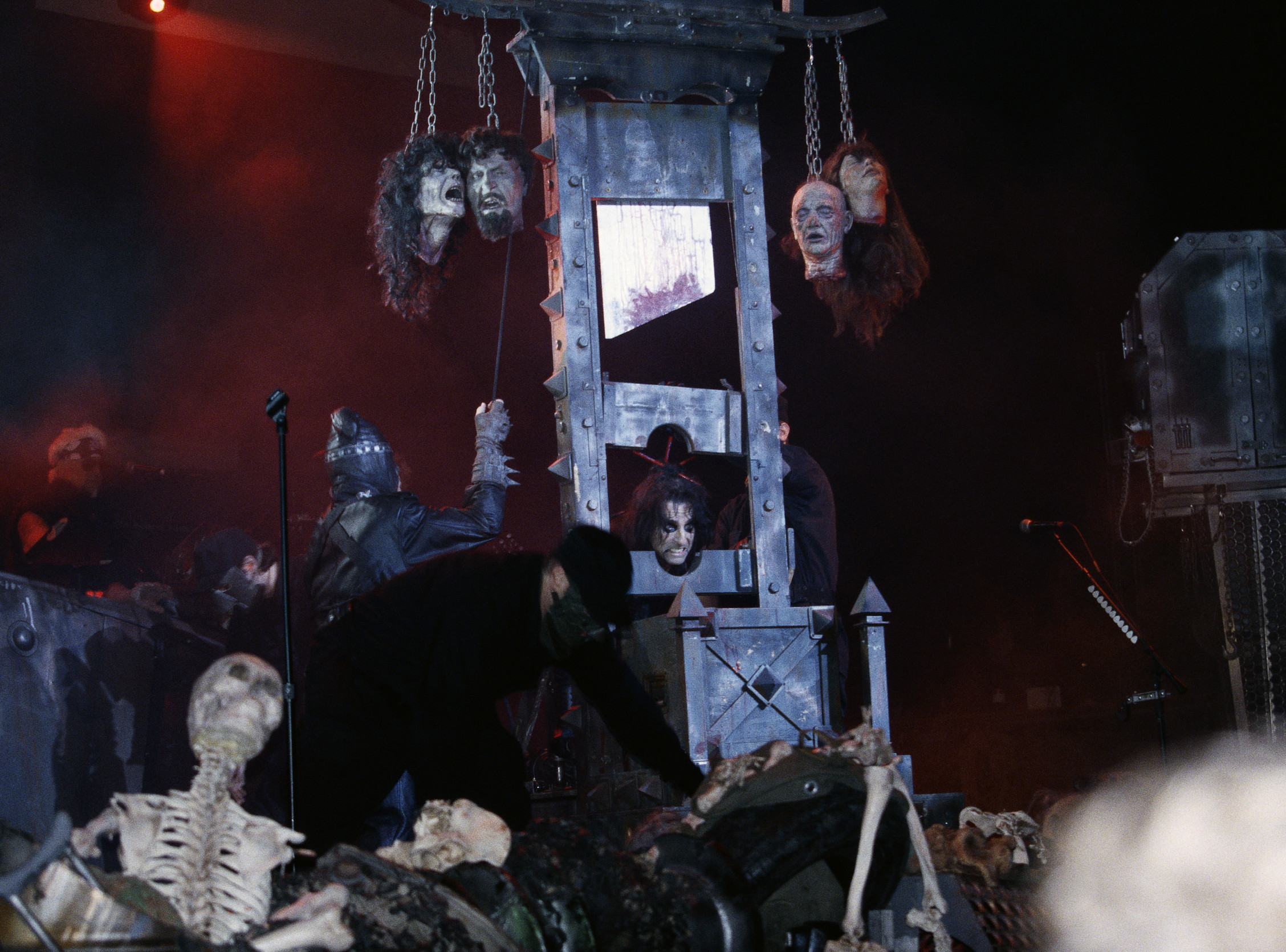
Today's entertainers
"I think the girls at this point have taken over the shows. You go look at Shakira, Rihanna, Katy Perry, Lady Gaga – they're doing Alice Cooper. That's what we were doing in the late '60s and early '70s through to now.
"The only other band that did the theatrics were Muse, who did a big show but it wasn't personal. The Alice Cooper show always felt like it was that little side show that you weren't supposed to go to in the circus, but you went anyway. It's like a freak show – you maybe shouldn't be there but you are.
"Rob Zombie does a really good show, Marilyn Manson does a great show. Gwar and Rammstein, it's all derivative of what we started doing, but the Alice show is still different. You focus on Alice as the main character, so we don't use pyro and things like that. I want the audience to get sucked in by the character because everything happens either to him or because of him."
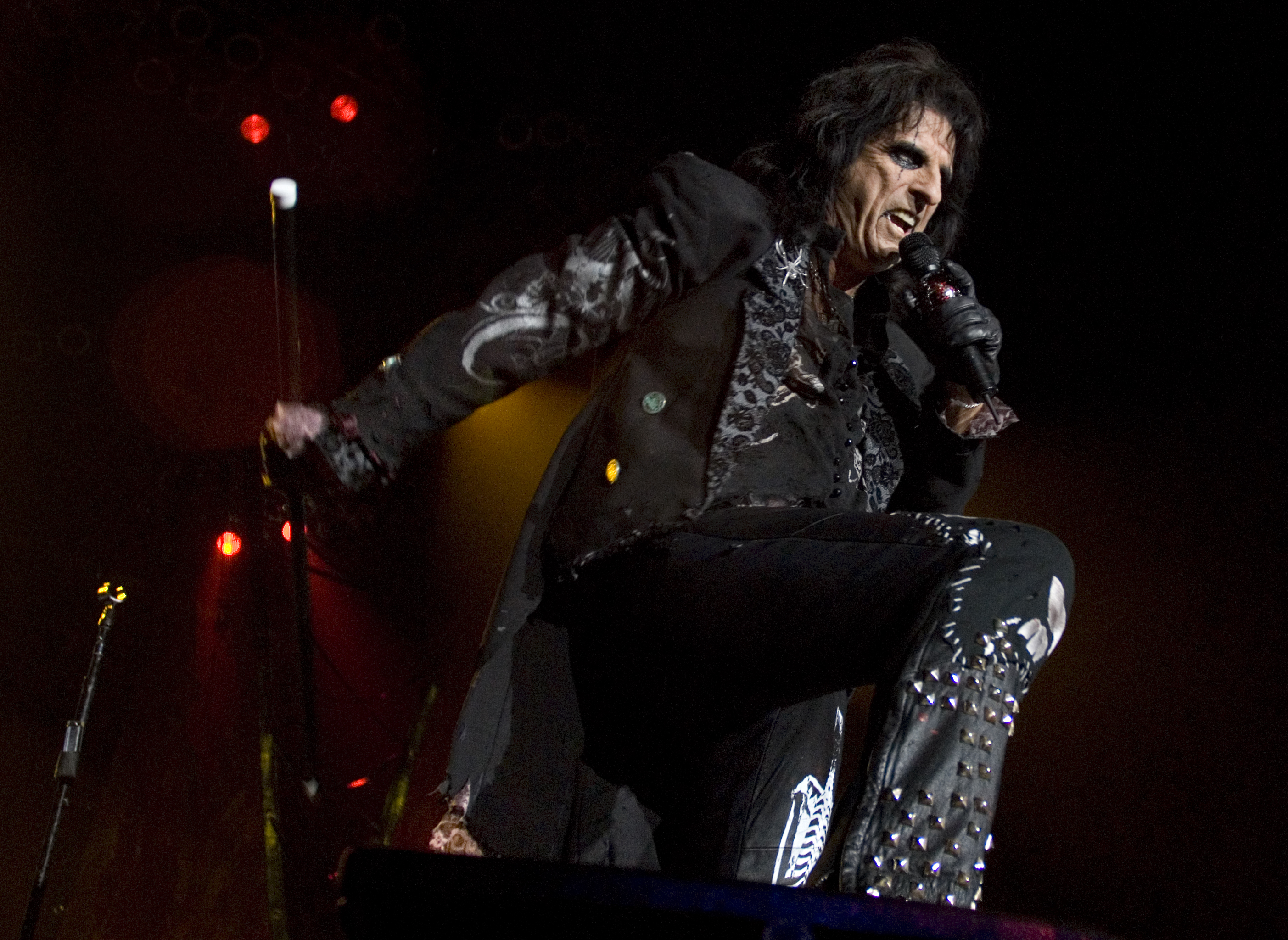
The future - Alice Cooper without the shock?
"People say all the time, 'Why don't we just do a musical show? Do Alice without the show, without the guillotine, the snake, and this and this and this?' We did that at the 100 Club. We just played rock 'n' roll one night – we were just a bar band that night.
"We could do that every night, but if I was in the audience, I would feel really let down if Alice didn't give me a show. That would be like if Mick Jagger just sat on a stool doing his songs. I want to see Mick Jagger moving."
Alice Cooper's Raise The Dead album is out now.
Rich is a teacher, one time Rhythm staff writer and experienced freelance journalist who has interviewed countless revered musicians, engineers, producers and stars for the our world-leading music making portfolio, including such titles as Rhythm, Total Guitar, Guitarist, Guitar World, and MusicRadar. His victims include such luminaries as Ice T, Mark Guilani and Jamie Oliver (the drumming one).
